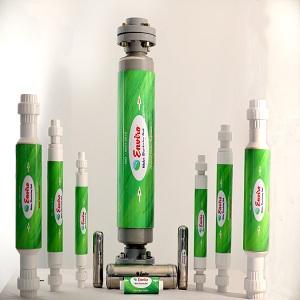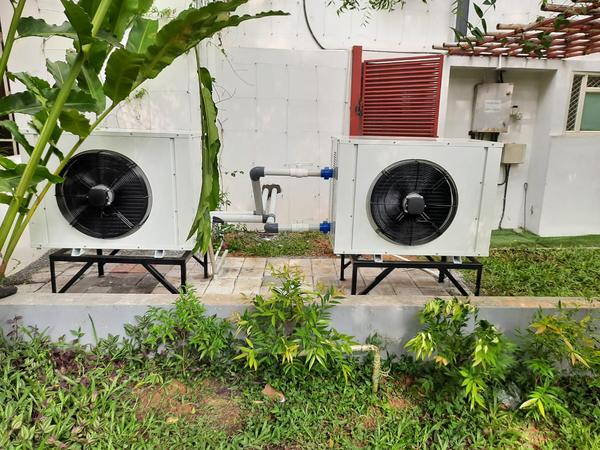Swimming Pool Heat Pump
A swimming pool heat pump is a device used to efficiently heat pool water by transferring heat from the surrounding air to the pool water. It operates on the principle of heat exchange, making it a cost-effective and environmentally friendly way to maintain a comfortable swimming temperature.
How It Works:
Air Intake: The heat pump draws in ambient air through a fan.
Heat Absorption: The air passes over an evaporator coil containing a refrigerant. This refrigerant absorbs the heat from the air and turns into a gas.
Compression: The warm gas is compressed by a compressor, increasing its temperature significantly.
Heat Transfer: The hot gas passes through a heat exchanger where it transfers its heat to the pool water.
Recycling: The refrigerant cools down, returns to liquid form, and the cycle repeats.
Features:
Energy Efficiency: Heat pumps use electricity to operate but rely on extracting heat from the air, making them more energy-efficient than traditional electric or gas heaters.
Temperature Control: They typically come with thermostats for precise temperature adjustments.
Durability: Designed to withstand outdoor conditions and prolonged use.
Eco-Friendly: Lower carbon footprint compared to fossil fuel-based heaters.
Advantages:
Lower Operating Costs: Despite the initial investment, they save money in the long run due to lower energy consumption.
Consistent Heating: They provide steady and reliable heating, especially in moderate climates.
Longevity: Can last for 10–20 years with proper maintenance.
Disadvantages:
Dependent on Air Temperature: Their efficiency decreases in very cold weather since they rely on heat from the air.
Slower Heating: It takes longer to heat the pool compared to gas heaters.
Ideal Use:
A swimming pool heat pump is best suited for regions with mild to warm climates where outdoor temperatures remain above 50°F (10°C). It's an excellent choice for residential and commercial pools, offering an economical way to extend the swimming season.
Send Message

